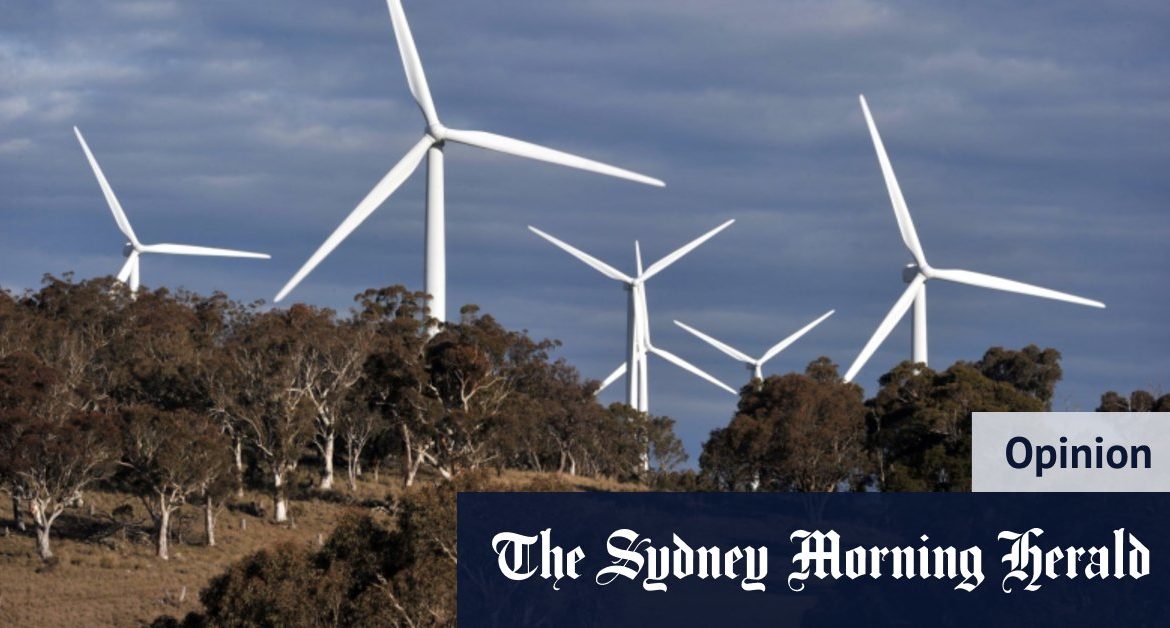This explains pretty much everything that has gone wrong in responding to the science on climate change – and what, if anything, to do about it – over the past several decades.
It is a warning as to what could go wrong as Australia embarks on its federal Energy Technology Roadmap and NSW lays out its Electricity Infrastructure Roadmap. Unless these roadmaps take into account cultural values, they won’t succeed at winning over the broadly small-c conservative voting public, or in bringing on board political conservatives in order to put an end to the “climate wars”.
Loading
There are a growing number of Liberal Party-aligned or affiliated organisations that are providing robust thinking around new energy generation technologies. The Coalition for Conservation says on its website that “Engaging and shifting the conservative side of politics is key to ending the ‘climate wars’”. Its aim is to “help engage LNP members, branches and representatives more deeply in understanding climate and renewable issues and provide support for high-profile conservatives willing to speak out to shift the debate”.
Another organisation with climate action on its mind is the newly established Blueprint Institute, a think tank with a board, staff and raft of strategic advisers who share close ties to the moderately minded wing of the Liberal Party. The first image on the homepage of the Blueprint Institute is a hillcrest of wind turbines. Blueprint Institute recently released a paper arguing that Australia should commit to net-zero emissions by 2050 and proposing a range of initiatives and technology options for achieving this goal.
The officially Liberal Party-aligned think tank, the Menzies Research Centre, has also been productive on this topic. It recently released a paper on Powering out of the Pandemic: Unleashing the potential of gas, providing extra ballast to the Morrison government’s policy of deploying gas as an accessible and low-emissions fuel while coal is phased out and renewable capacity increases enough to replace it.
These are all important initiatives, but they too risk falling into another trap Kahan has identified: flooding the public “with as much sound data as possible on the assumption that the truth is bound, eventually, to drown out its competitors”. But if, as Kahan points out, the truth “carries implications that threaten people’s cultural values, then holding their heads underwater is likely to harden their resistance and increase their willingness to support alternative arguments, no matter how lacking in evidence”.
Loading
The cultural value that creates resistance to renewables within Coalition ranks and conservative communities is the primacy of work and enterprise. As long as renewables are seen as subsidy-dependent frolics that destroy jobs and raise prices, there is likely to be continued resistance towards them.
Labor is shifting to acknowledge these concerns are valid. In a book of essays released this week by the Labor-Right think tank, the John Curtin Research Centre, South Australian Senator Marielle Smith warns that “Labor politicians must never look down on the vast majority of Australians who identify financial security among their top goals”.
The onus is now on business to show that renewables can power the economy and create jobs: there’s a lot riding on the success of Australia’s numerous renewable projects. No amount of evidence on climate change will shift attitudes to climate action unless it can align with cultural priorities. Kahan’s science of science communication shows it’s true.
Parnell Palme McGuinness is managing director strategy and policy at strategic communications firm Agenda C. She has in the past done work for the Australian Liberal Party, the German Green Party and the Menzies Research Centre.







